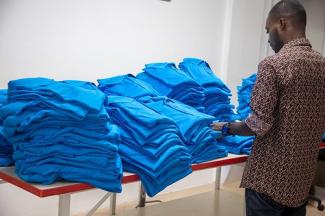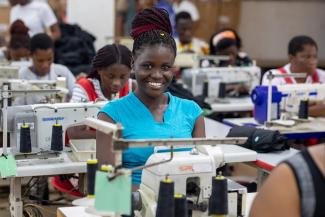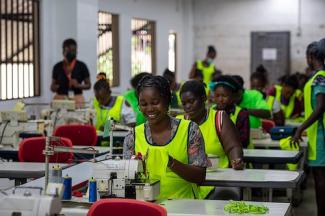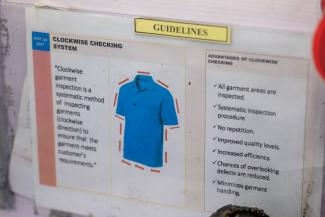Apparel with Dignity
Establishing West Africa as a global leader in ethically sourced textiles
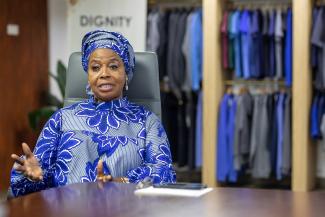
For Salma, it started with a single sewing machine and a dream of providing for her family.
Today, Salma is the managing director of the largest apparel factory in West Africa.
Salma began making clothing for her three children on a sewing machine in the bedroom of her Accra, Ghana home. Before long, she was getting requests to make clothing for her friend’s children.
In 2012, Salma decided to turn her hobby into a business and opened her own garment company, calling it Dignity, referring to an attribute she says she strives to both embody and impart.
Sewing was something I liked doing, so why not take it up and do it the right way?” says Salma.
DO THE RIGHT THING
In 2013, USAID introduced Dignity to a U.S garment company called Do The Right Thing (DTRT). The two garment companies formed a joint venture called Dignity DTRT, allowing Dignity to leverage DTRT's connections and previous contracts to attract international buyers.
Today, the Accra-based apparel manufacturing company Dignity DTRT produces close to 60,000 garments per day and averages $40 million in sales annually. Dignity DTRT distributes its products—everything from jackets to sportswear—to buyers all over the world.
Salma credits much of this success to USAID-supported training she received on market research and export strategies.
The factory’s productivity rate is on par with factories in Asia, and Salma hopes to double the company’s 5,000-person workforce over the next two years.
EMPOWERING WOMEN
Over 70% of Dignity DTRT’s employees are women, many of whom lacked job skills prior to joining the company, and come from low-income backgrounds. The company employs women engineers and machine operators, occupations traditionally dominated by men, and offers women the opportunity to assume leadership and management roles.
When women are empowered and given opportunities, they take it back home to support their families,” says Salma.

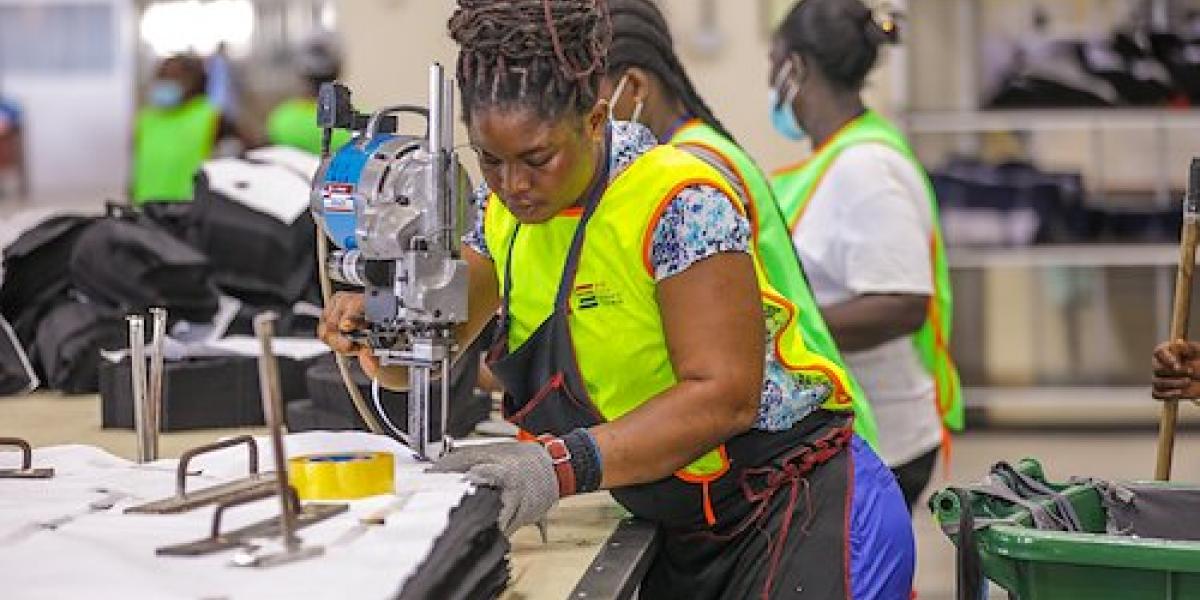
Dignity DTRT prides itself on its factory’s working conditions and wellness initiatives, such as ergonomic office supplies, free health screenings, and a planned nursery for employees who are single parents. It also offers a competitive salary, benefits, and generous bonuses for performance, attendance, and longevity, as well as opportunities for employee training.
The apparel sector in Ghana is nascent, and there isn’t an existing labor pool of trained commercial garment makers, so the company provides on-the-job training to young Ghanaians.
The USAID-supported training program teaches new hires how to understand the garment production process from start to finish, something Salma says is important for maintaining the quality of clothing and integrity of the business. Employees learn how to operate the machinery, factory safety protocols, and how to take care of themselves on and off the job.
Employee well-being, Salma stresses, is at the heart of Dignity DTRT’s mission.
This training is expensive, but since we wanted to do it the right way as a business, the investment is worth it,” says Salma.


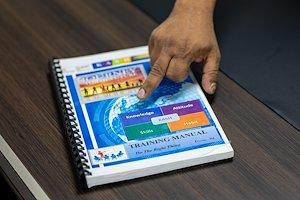
Dignity DTRT also employs people with disabilities who are matched with jobs that fit their skill sets.
We as a company believe that there’s no one that is disabled when it comes to doing a job,” says Salma. “All we need to do is make sure we give the same level of opportunity to everyone who walks in.”
Dignity DTRT is adding a third factory in Ghana and is planning to accommodate bigger, more automated machinery, a rapidly expanding workforce, and increasing demand from international buyers.
Under Salma’s leadership, Dignity DTRT has proven that companies can center employee economic and social wellbeing within their business plans while also competing globally. This proof of concept is spreading to other textile and apparel firms, establishing Ghana as a new outlet for global ethically sourced apparel.
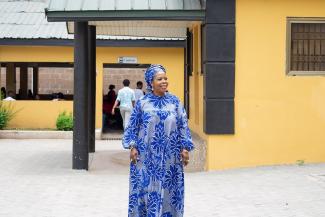
Learn how USAID is helping West African businesses to unlock their full potential and thrive through the West African Trade & Investment Hub. Follow @WestAfricaHub on Facebook and Twitter.
ABOUT THIS STORY
USAID supports Dignity Do the Right Thing through a grant as part of the West Africa Trade and Investment Hub. The Trade Hub is a five-year, $140 million trade and investment facilitation activity designed to improve private sector productivity, profitability, and competitiveness in West Africa through market-based approaches. By working in partnership with the private sector and fostering co-investments through our Co-Investment Fund, the Trade Hub generates new private-sector capital investment in key sectors to create jobs and increase trade between the United States and West Africa.
Footnotes
Narrative by Cassie Vasiloff; photos by Emmanual Attramah and Yooku Ata-Bedu.



